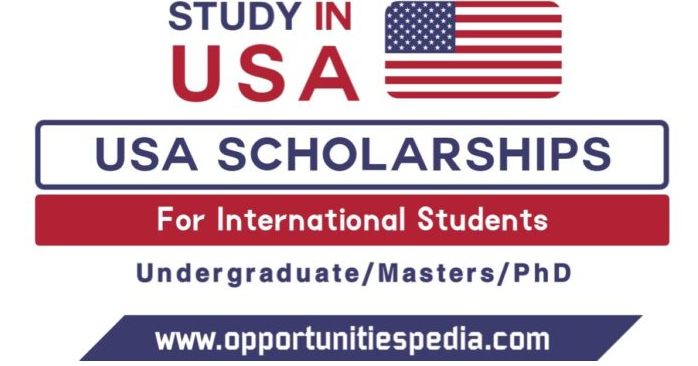Private universities in the United States are renowned for their distinctive features and contributions to higher education. Below are some key characteristics: 1. Independent Funding and Management Non-Governmental Support: Operate primarily on tuition fees, endowments, and private donations rather than government funding. Flexible Administration: More autonomy in creating policies, programs, and campus initiatives compared to public institutions. 2. Diverse and Selective Admissions Selective Admissions: Often employ a holistic admissions process, considering academics, extracurriculars, essays, and personal recommendations. Small Student Population: Generally, smaller than public universities, offering a close-knit community feel.
3. Academic Excellence Prestigious Faculty: Many are home to leading researchers and professors. Focus on Research: Strong emphasis on advanced research across various disciplines. Specialized Programs: Unique or niche academic offerings not found at many public institutions. 4. Campus Facilities and Resources State-of-the-Art Facilities: Private funding often supports modern facilities, technology, and libraries. Generous Endowments: Large endowments (e.g., Harvard, Stanford) allow significant investment in academic and extracurricular offerings. 5. Tuition and Financial Aid Higher Tuition Fees: Private universities are typically more expensive than public ones. Robust Financial Aid:
Many provide substantial need-based or merit-based scholarships to attract a diverse student body. 6. Personalized Attention Low Student-to-Faculty Ratios: Enable more personalized instruction and mentoring. Career Services: Offer strong alumni networks and tailored career placement services. 7. Global Prestige and Networking Opportunities World-Renowned Institutions: Examples include Harvard, Stanford, Yale, and MIT. Strong Alumni Networks: Often boast influential alumni networks, facilitating career opportunities worldwide. 8. Unique Campus Cultures Traditions and Values: Many private universities have deep-rooted traditions and unique campus cultures. Religious Affiliation: Some, like Notre Dame and Georgetown, have religious affiliations influencing campus life and curriculum. Would you like details on specific universities or guidance on applying?
Independent Funding and Management
Independent Funding and Management in Private Universities Private universities in the United States operate independently of government control and funding. This independence allows for greater flexibility in administration, decision-making, and resource allocation. Below are the key aspects of their funding and management structure: 1. Primary Funding Sources Tuition Fees: A significant portion of revenue comes from students’ tuition payments, which are often higher than at public institutions. Endowments: Large financial reserves accumulated through donations from alumni, philanthropists, and organizations.
Interest earned on these funds is used to finance scholarships, research, and facility improvements. Examples: Harvard and Princeton have endowments worth tens of billions of dollars. Private Donations and Grants: Contributions from wealthy individuals, corporate sponsors, and charitable organizations. Often directed toward specific programs, research projects, or building new facilities. Research Grants: Secured from private companies or foundations to fund innovative research initiatives. 2. Financial Independence Minimal Government Dependency: Unlike public universities, private ones do not rely heavily on federal or state funding, except for occasional research grants or financial aid programs like Pell
Grants for students. Flexibility in Budget Allocation: Funds are allocated based on institutional priorities, often allowing for quicker adoption of new programs or facilities. 3. Administrative Autonomy Governance: Managed by a private board of trustees, often comprising influential alumni, philanthropists, and experts. Boards have significant influence over the university’s vision, policies, and financial strategies. Policy Creation: Freedom to set tuition rates, create specialized programs, and adopt unique academic calendars. Flexibility in adapting to market trends, such as creating degrees in emerging fields like data science or sustainability. 4. Influence of Philanthropy Donor Impact: Donors often contribute to shaping programs,
such as naming schools (e.g., Stanford’s Knight-Hennessy Scholars) or funding research initiatives. Naming rights for buildings or scholarships can enhance institutional prestige. Ethical Considerations: Private universities must balance donor influence with academic integrity and independence. 5. Challenges of Financial Independence High Tuition Fees: To maintain independence, costs are often passed on to students, making tuition high compared to public universities. Economic Vulnerability: A heavy reliance on donations and tuition can make them susceptible to economic downturns affecting enrollment or philanthropy. This independent funding model empowers private universities to innovate and maintain prestige but often requires careful financial stewardship to balance costs and accessibility. Would you like to explore specific examples of how private universities manage their funds?
Academic Excellence in Private Universities Private universities in the United States are widely recognized for their commitment to academic excellence. This reputation stems from their rigorous standards, innovative programs, and a supportive environment that nurtures intellectual growth. Below are the key factors contributing to their academic distinction: 1. Prestigious Faculty World-Class Educators: Private universities often attract leading scholars, researchers, and Nobel laureates. Professors are frequently involved in cutting-edge research, bringing current knowledge into the classroom. Personalized Mentorship: Smaller class sizes allow faculty to engage more closely with students, offering tailored guidance and mentorship. 2. Advanced Research Opportunities Well-Funded Research Programs:
Robust financial support from endowments, grants, and private donors fuels groundbreaking research. Universities like Stanford and MIT lead in innovation across fields such as technology, medicine, and engineering. Undergraduate Research Access: Private institutions often allow undergraduates to collaborate with faculty on research projects, enhancing learning and career prospects. 3. Specialized and Interdisciplinary Programs Unique Academic Offerings: Programs tailored to emerging fields like artificial intelligence, climate science, and global health. Flexible curricula encourage students to pursue double majors, minors, or interdisciplinary studies. Honors Programs: Many private universities offer enriched honors tracks with advanced coursework and research opportunities. 4. Rigorous Curriculum Challenging Academics: Curricula are designed to challenge students, promoting critical thinking, problem-solving, and creativity. Liberal Arts Focus: Some private universities, like Amherst and Williams, emphasize a well-rounded liberal arts education, encouraging exploration across disciplines. 5. Small Class Sizes and Low Student-to-Faculty Ratios Individualized Attention: Smaller classes foster more interaction
between students and professors. Collaborative Learning: Intimate classroom settings encourage discussion, debate, and active participation. 6. Global Recognition and Prestige Rankings and Reputation: Private universities often top global and national rankings, such as those by U.S. News & World Report or QS World University Rankings. International Appeal: Their reputation attracts students and faculty from around the world, creating a diverse and intellectually vibrant community. 7. State-of-the-Art Facilities Modern Labs and Libraries: Cutting-edge facilities enhance learning and research experiences. Technology Integration: Investment in digital tools and resources keeps education aligned with current industry practices. 8. Strong Alumni Network and Career Services Networking Opportunities: Graduates from prestigious private universities often join influential alumni networks, providing career advantages. Career Preparation: Comprehensive career services help students secure internships, research opportunities, and post-graduate positions. Notable Examples of Excellence Harvard University: Renowned for its law, business, and medical schools. California Institute of Technology (Caltech): Specializes in science and engineering with a focus on innovation. Princeton University: Known for its robust undergraduate education and emphasis on research. Would you like guidance on selecting a private university, or details on programs tailored to specific fields of interest?










